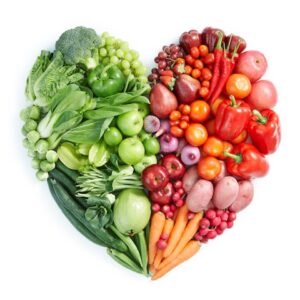The term “vegetable” is ambiguous, which means that it can refer to a variety of foods. Some vegetables are green leaves, while others are root vegetables such as potatoes or carrots. People who eat a plant-based diet should eat many different types of vegetables every day because they are full of nutrients and fibre.
Eating the right amount of vegetables each day is essential for maintaining a healthy diet. However, this isn’t always easy, especially if you don’t like vegetables or don’t know where to find them. Fortunately, there are simple ways to increase your vegetable intake even if you don’t feel like cooking.
If you have trouble remembering to eat more veggies on a regular basis, here are some tips:
Eat more raw vegetables
If you love veggies but don’t typically eat them raw, try adding more raw vegetables to your diet. Raw vegetables are more nutrient-dense than cooked vegetables because they retain more vitamins, minerals and fibre when consumed raw.
wary of overcooking raw vegetables because they are not as nutrient-rich when cooked. It’s best to consume raw vegetables, such as carrots, cucumbers, tomatoes and sweet potatoes, with a meal or as a snack. Adding raw vegetables to salads is a good way to incorporate them into your diet, too.

Chop your vegetables into bite-sized pieces
Vegetables are best when eaten raw, but they can also be lightly steamed or lightly boiled before being chopped. Raw vegetables, such as carrots and beets, are more nutrient-dense when eaten raw because they have not been washed or peeled.
Warm vegetables, like carrots and potatoes, are less nutrient-rich than vegetables that have been chilled, like lettuce and bell peppers. Vegetables can be microwaved, chilled in the fridge or lightly steamed before being chopped.
Bake, boil or steam your veggies
Baked vegetables, such as carrots or green beans, are healthier than raw vegetables because they have been cooked before being eaten. Boiling vegetables, such as carrots and potatoes, maintain most of their vitamins and minerals while being boiled because they are heated to a temperature below 212°F.
Steaming vegetables, such as broccoli or cauliflower, trap the water inside the vegetable, resulting in a more concentrated form of vitamins and minerals. Cooking vegetables also change their taste and texture, which makes them easier to eat.
Carrots are normally crunchy and full of fibre, but when baked, they become soft and sweet. Boiling vegetables creates a softer texture that is easier to eat than raw vegetables.

Try new recipes that incorporate new veggies
Vegetables are a great source of fibre, vitamins and minerals. It’s important to eat a variety of vegetables every day, but it’s easier if some of your vegetables are new to you. Look for recipes that include new vegetables, such as kale, beets, ginger or cucumbers. You can also try to bring more new veggies into your meals, such as carrots and sweet potato in your oatmeal, or broccoli and cauliflower in your pasta.
Serve up the same old veggies with new twists
Vegetables can be a little boring, so don’t be afraid to try new recipes that incorporate vegetables. You can also add vegetables to your favourite recipes, such as pasta with tomato sauce or a batch of baked cookies.
Vegetables can be thrown into casseroles or served alongside meat dishes to add extra vegetables without adding too much salt. Vegetables can also be used in smoothies or mixed into oatmeal. There are so many ways to incorporate vegetables into your diet.

Stay hydrated to help you remember to eat more vegetables
One of the best ways to increase your vegetable intake is to stay hydrated. Water is the best way to get nutrients and stay hydrated, so it’s important to drink lots of water every day. Adding some lemon or orange slices to your water can also help you remember to drink more water. You can also try sticking Post-It notes on your fridge or on your computer screen so that you don’t miss out on your daily water intake.
Vegetables are low in calories and don’t provide many nutrients, so it’s important to stay hydrated. Your body needs water to function properly and to retain nutrients. Over-hydrating your body by drinking too much water or too many glasses of water can be dangerous because it can dilute your blood pressure.
Conclusion
Vegetables are a great source of fibre, vitamins and minerals, but you should eat a variety of different vegetables every day. Vegetables are best when eaten raw, lightly steamed, lightly boiled or lightly baked, but there are many different ways to enjoy vegetables, such as adding them to casseroles or pasta dishes, mixing them into smoothies or adding them to oatmeal.
Vegetables are low in calories and don’t provide many nutrients, so it’s important to stay hydrated by drinking lots of water. Vegetables are full of water, so it’s important to stay hydrated to help you remember to eat more vegetables.





